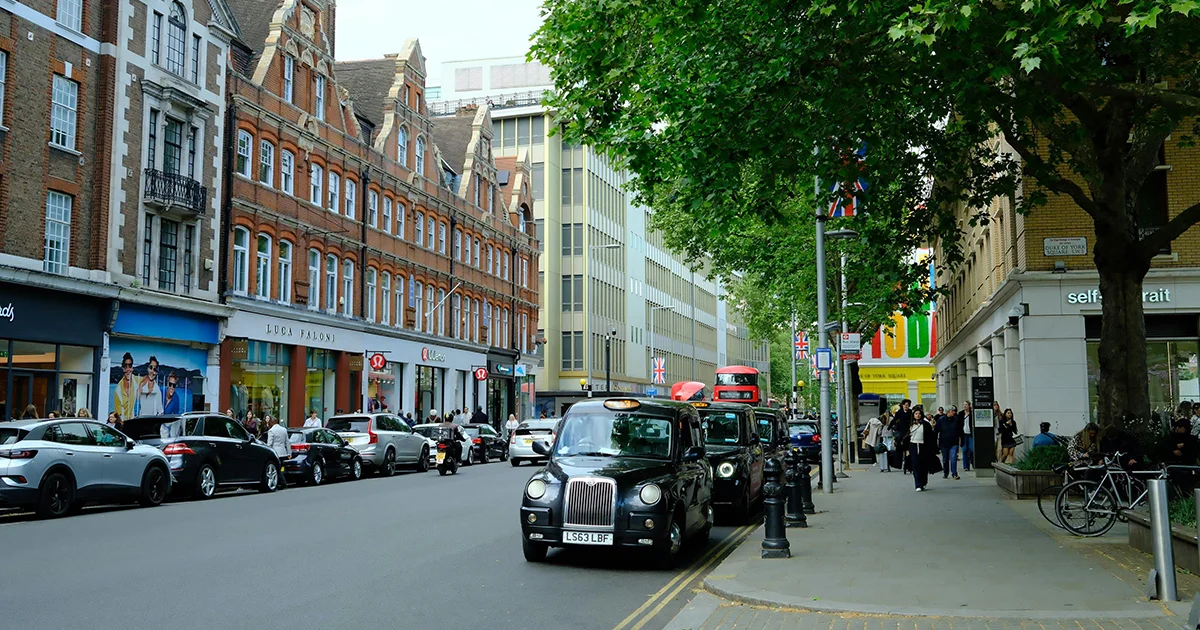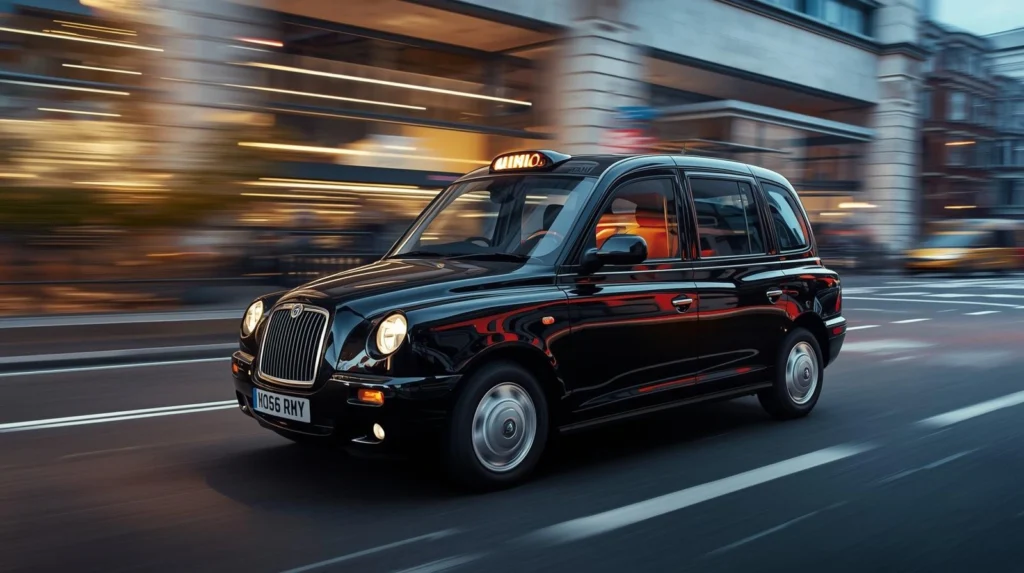Have you noticed the changes in the way minicab services operate in London? In 2025, new regulations introduced by Transport for London’s New TFL Regulations are reshaping the landscape of private hire vehicles, including minicabs. Whether you’re a frequent user or a business owner relying on these services, these changes could significantly impact how you travel, as well as how businesses manage their private hire car operations.
The new rules focus on everything from driver qualifications to vehicle standards, aiming to improve safety, reduce congestion, and boost customer satisfaction. But what does this mean for you and your business?
In this article, we will dive into the key aspects of these regulations, exploring how they affect both passengers and minicab operators in London. You will learn what you need to know about the evolving landscape and how you can adapt to make the most of these changes.
What Are the New TFL Regulations for Minicabs in London?
In 2025, TFL introduced a series of new regulations designed to improve the safety, efficiency, and environmental sustainability of minicab services in London. These regulations have been developed in response to increasing demand for private hire vehicles, as well as the ongoing push for greener transportation options.
Some of the most significant changes include:
1. Stricter Vehicle Emissions Standards
Under the new regulations, all private hire cars (minicabs) are required to meet stricter emissions standards. This is part of London’s broader initiative to reduce air pollution and meet its environmental goals. It means that minicabs will need to be low-emission or electric vehicles (EVs) in order to operate in the city. This is a major shift that could see older vehicles phased out and replaced with more eco-friendly alternatives.
2. Enhanced Driver Training and Qualifications
TFL has introduced higher standards for driver training. Drivers must now undergo more extensive training, including customer service courses, road safety instruction, and knowledge of London’s geography. This aims to enhance the quality of service and ensure that drivers are fully equipped to handle the demands of the job.
3. GPS and Monitoring Technology Requirements
All minicabs in London are now required to be fitted with advanced GPS tracking and monitoring systems. These systems will enable more efficient route planning, enhance safety, and allow for better regulation of service standards.
4. Stronger Licensing and Inspection Protocols
Minicab companies must now adhere to more stringent licensing protocols. Vehicles and drivers will be subject to regular inspections to ensure compliance with safety standards. This includes periodic checks on the condition of the vehicles, as well as ensuring drivers maintain the appropriate licenses and certifications.
These changes are part of TFL’s broader strategy to modernize the city’s transport ecosystem, improving both the experience for users and the overall environmental impact of minicab services.
How Will These Regulations Impact Minicab Users in London?
For everyday users, these regulations promise a more reliable, safer, and environmentally conscious travel experience. Here’s how:
1. Safer and More Reliable Rides
With stricter driver training and regular vehicle inspections, passengers can expect a higher level of safety and reliability when using minicabs. You’ll be driven by professionals who have undergone thorough training, and the vehicles you ride in will be regularly checked for mechanical issues.
2. Cleaner Air and More Sustainable Travel
The emphasis on electric and low-emission vehicles means that you’ll have access to greener transportation options. With air quality in London being a major concern, this shift will help reduce pollution, making the city more environmentally friendly for everyone.
3. Faster Journeys with GPS and Monitoring
GPS tracking systems will not only improve driver navigation but will also allow for more accurate time estimates. Expect shorter wait times and more direct routes, as drivers will have access to up-to-date traffic information and optimal routes to your destination.
4. Higher Fares Due to Compliance Costs
While the new regulations promise a better overall experience, they could also lead to higher fares. As minicab operators invest in cleaner vehicles, better training, and new technology, these costs may be passed on to passengers. However, the improved service and environmental benefits may make the price increase worthwhile for many users.
Ride Comfortably with Barnes Cars London – Available 24/7 Across London
Need to reach the office quickly or run a last-minute errand? Book a reliable London minicab service with Barnes Cars London, operating round the clock. We deliver stress-free, comfortable journeys at fair rates. Call us today or book your trip online with ease.
How Are Minicab Operators Adapting to the New TFL Regulations?
For minicab businesses, the new regulations bring both challenges and opportunities. Here’s how operators are adjusting:
Let’s Go
Get Instant Booking
Book Your Ride
020 8876 6666
1. Investing in Electric Vehicles (EVs)
Many minicab operators are making the switch to electric vehicles to comply with the new emissions standards. This transition, while costly, allows companies to future-proof their fleets and avoid penalties. Furthermore, the rise in EVs can be marketed as an eco-friendly selling point, attracting passengers who prioritize sustainability.
2. Upgrading Driver Training Programs
To meet the new training requirements, minicab companies are investing in comprehensive driver education programs. These programs focus not only on driving skills but also on customer service, knowledge of the city, and understanding the regulations. This will help drivers maintain high standards of service while ensuring they remain compliant with the law.
3. Implementing New Technology for Efficiency
Many companies are embracing new technology solutions to meet the GPS tracking and monitoring requirements. Some companies are integrating smart routing systems that help drivers avoid congestion, while others are adopting ride-hailing platforms with real-time data sharing to improve service efficiency and monitoring.
4۔ Focusing on Customer Satisfaction
With the new regulations requiring improved driver behavior and service standards, operators are focusing on customer satisfaction like never before. By offering more comfortable, reliable, and eco-friendly rides, minicab services are becoming more appealing to passengers.
What Are the Potential Challenges for Minicab Operators?
While the new regulations offer clear benefits, they also present several challenges for minicab operators, especially small businesses and startups:
1۔ High Upfront Costs
Transitioning to electric vehicles and upgrading technology requires significant upfront investment. Smaller operators may struggle to afford these costs, which could put them at a disadvantage compared to larger companies with more resources.
2۔ Ongoing Compliance and Maintenance Costs
Regular inspections and compliance with the new training and licensing requirements will add to the ongoing operational costs for minicab companies. This could squeeze profit margins, especially for businesses that operate with thin margins.
3۔ Adapting to Rapidly Changing Regulations
TFL’s regulations may continue to evolve, requiring minicab operators to remain agile. Keeping up with these changes and ensuring continuous compliance will require investment in both time and money.
What Are the Benefits of These New Regulations for Minicab Businesses?
Despite the challenges, there are several key benefits for businesses that successfully navigate the new regulations:
1۔ A Competitive Edge in a Crowded Market
By adopting EVs, improving customer service, and enhancing operational efficiency, minicab companies can stand out in a crowded market. Passengers are increasingly seeking greener and more reliable travel options, so businesses that meet these needs can attract a loyal customer base.
2۔ Access to Incentives and Grants
The UK government and TFL offer various incentives and grants for businesses making the shift to low-emission vehicles. Minicab operators who embrace these changes may be able to offset some of the initial costs, easing the financial burden.
3۔ Increased Customer Trust and Satisfaction
With better service standards, safer vehicles, and a commitment to sustainability, customers will feel more confident in choosing minicabs for their travel needs. This can lead to improved customer retention and brand loyalty.
Conclusion
The new TFL regulations set to impact London’s minicab services in 2025 are creating a seismic shift in how private hire cars operate. While the changes may pose challenges for some minicab operators, they also present significant opportunities for those who are ready to adapt. With improved safety standards, eco-friendly vehicles, and better-trained drivers, passengers are set to enjoy a more reliable, sustainable, and comfortable experience.
For businesses, this is a chance to modernize, enhance their reputation, and tap into the growing demand for green transportation solutions. However, adapting to the new regulations will require investment, flexibility, and a commitment to delivering exceptional service.
As the minicab industry in London continues to evolve, both passengers and operators must stay informed and ready to embrace the changes for a more sustainable and efficient future.
FAQs
How do the new TFL regulations impact minicab fares?
While the new regulations could result in higher fares due to compliance costs, the enhanced service quality and environmental benefits may justify the price increase for many passengers.
Are all minicabs required to switch to electric vehicles in 2025?
Yes, TFL has mandated that all private hire cars meet strict low-emission or electric vehicle standards by 2025 to reduce the city’s carbon footprint.
How will driver training be affected by the new regulations?
Minicab drivers will now be required to undergo more comprehensive training programs, covering everything from customer service to London geography, to ensure higher service standards.
Will the new regulations improve passenger safety?
Yes, with stricter vehicle inspections and enhanced driver qualifications, passengers can expect safer, more reliable rides in line with the new regulations.
What are the environmental benefits of the new minicab regulations?
The focus on electric vehicles and low-emission cars will significantly reduce the environmental impact of London’s minicab fleet, helping to improve air quality in the city.
How can minicab businesses comply with the new regulations?
Businesses must invest in electric vehicles, upgrade their driver training programs, implement GPS tracking systems, and ensure regular vehicle inspections to meet the new TFL standards.




